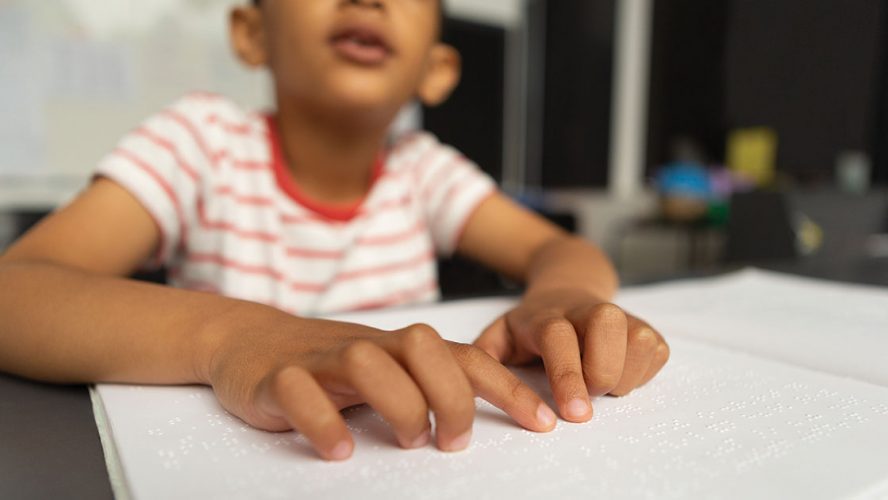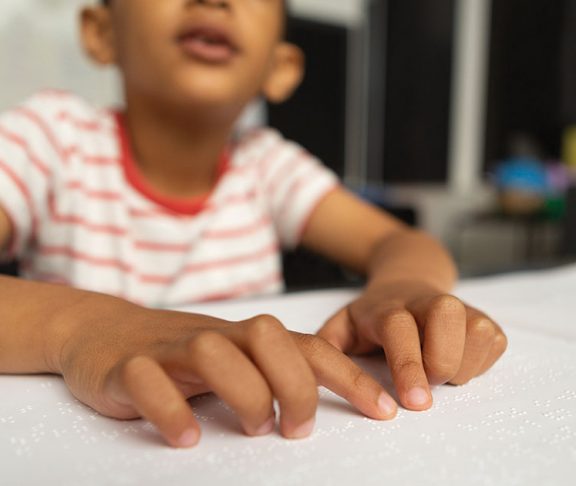Every year, over 1,200 kids compete in the Braille Challenge, the only academic competition of its kind in North America for blind and visually impaired students.
In the contest, students demonstrate their Braille literacy skills by competing in a series of categories ranging from reading comprehension to spelling to speed and accuracy. “Think of it like the national spelling bee but for Braille readers and much more comprehensive” says Sergio Oliva, associate vice president of programs and services at Braille Institute. “Braille Challenge motivates students to hone and practice their Braille literacy skills which is essential to academic and employment success.”
Studies indicate that only about 23 percent of youth who are blind or visually impaired graduate high school and less than 15 percent go on to receive a bachelor’s degree. Braille literacy can be the bridge from high school to college and beyond. “We are committed to supporting the long-term success, independence, and self-confidence of those with vision loss,” says Peter Mindnich, president of Braille Institute.
Braille Institute of America has been supporting braille literacy and hosting the Braille Challenge for more than 20 years. Regional competitions for the Braille Challenge take place throughout the United States and Canada, and then the top 50 students are invited to compete in Braille Challenge Finals which are held in Los Angeles. For 2020, despite the COVID-19 pandemic, the finals competition took place virtually.
Getting involved
Many of the past Braille Challenge students have continued on to higher education and beyond. Yet they remain active Braille Challenge alumni, returning to support current students. One of those active alumni is Caitlin Hernandez who competed in Braille Challenge back in 2006 and 2008. She attended and graduated from UC Santa Cruz with a BA in Literature. She then received her master’s degree in Special Education from San Francisco State University. She is now a full-time special education teacher. “Braille Challenge inspired me to be a strong Braille reader and writer which is something that continues helping me in my career today,” says Caitlin.
There are numerous ways to get involved and participate in the Braille Challenge. Students who are blind or visually impaired are welcome to participate in one of more than 50 regional Braille Challenge competitions that take place throughout the United States and Canada. Volunteers are also needed, especially those who are Teachers of the Visually Impaired to help with proctoring and scoring, and donation support is always welcomed to sustain this important program.
You can learn more about Braille Institute free services and the Braille Challenge program by visiting bit.ly/bcliteracy2021 or calling 1-800-BRAILLE (272-4553).
This has been paid for by Braille Institute.

